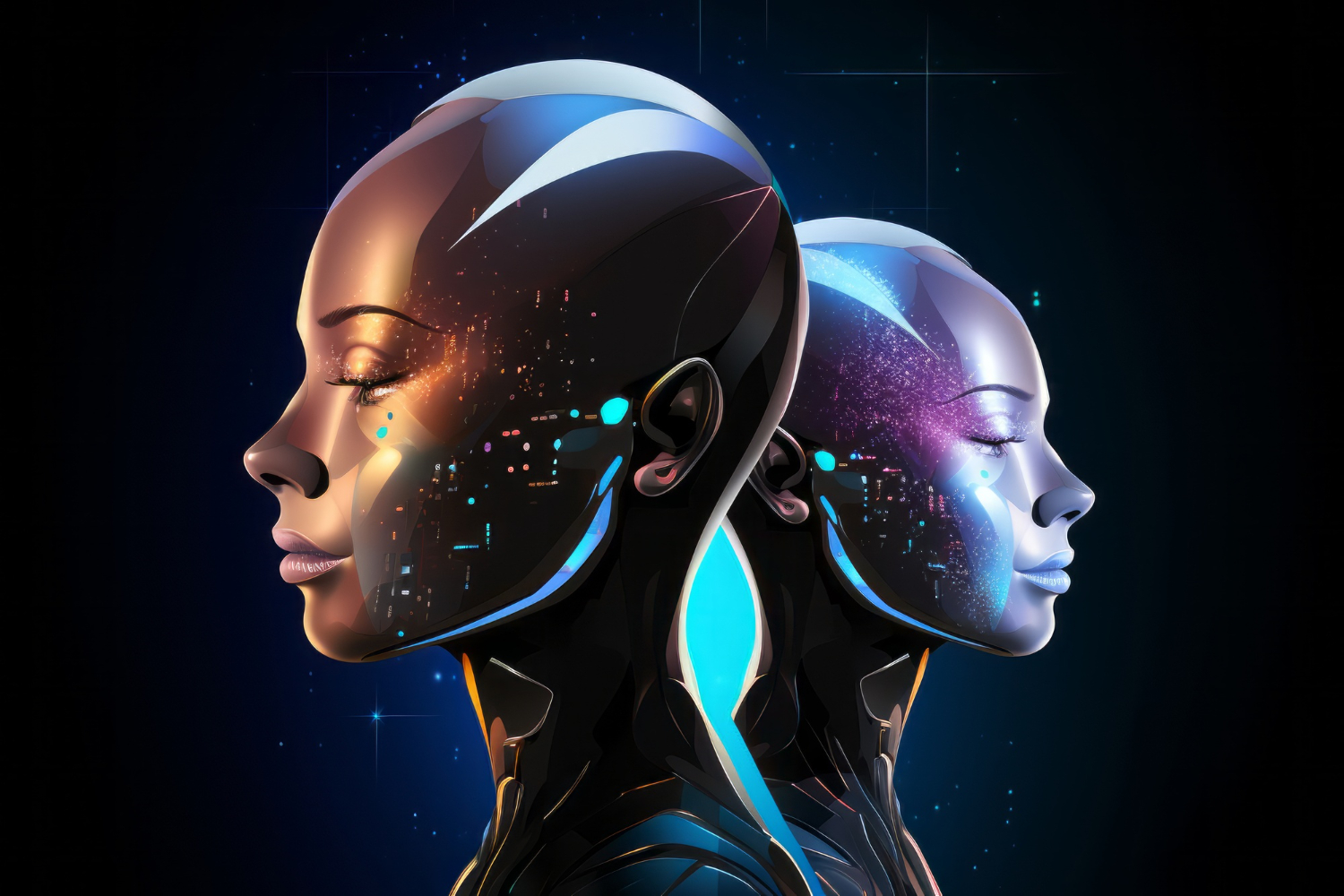A Human-Centred AI World


In 2024, leaders will embrace advancing technology while empowering their employees, and individuals will align their skill development and ongoing education with both AI capabilities and essential interpersonal skills
Flipping through the back issues of Harvard Business Review of McKinsey’s Insight pages what strikes one today is how quickly organisations changed from ‘winning the battle for talent’ to dramatically pruning their workforce, in just 24 months. According to the global layoff tracker website layoffs.fyi, a total of 263,180 employees were laid off by 1,191 tech companiesin 2023. And 2024 saw 237 companies firing 58,499 employeesover just the first three months.
What changed in the period was an aggressive acceleration in the adoption of technology, especially generative artificial intelligence (GenAI), sweeping automation, and an urgent need to correct over-hiring during the pandemic years. Nevertheless, what hasn’t change is the realisation that AI-driven work will need human talent more than ever. As organisations optimise their workforce using technology, the heavy-users of GenAI are also planning to quit their jobs, according to a McKinsey survey.
AI to revolutionise work
Similar to how the internet transformed the 1990s, AI is poised to revolutionise the very nature of work. While change can be daunting, the past three years have shown us that it also presents an opportunity to redefine our approach. The most effective way to navigate the upcoming changes for both employees and employers is to embrace a skills-first mindset.
For employees, this involves viewing their job as a set of tasks rather than just a job title, recognising that these tasks will evolve as AI progresses. By deconstructing their role into tasks that AI can handle completely, tasks that AI can enhance efficiency in, and tasks that require their unique skills, individuals can pinpoint the skills they need to develop in order to remain competitive in their current position.
AI to be part of every work-flow
Every organisation will integrate GenAI in its workflow, as evidence of incredible productivity increases continues to gather. EY is one example of a company widely deploying GenAI. Internally, it uses conversational AI for all its 400,000 employees across a wide variety of tasks, and externally, it uses AI to help its client companies. The consulting firm claims to have achieved 15%-20% improvement in productivity. There are reports that some companies have witnessed even 40% productivity gains.
It has, therefore, become imperative for employees to evaluate their tasks and proactively adopt GenAI to become more productive, free up time, and use it creatively to stay relevant. McKinsey recently conducted a survey of employees to explore how organisations can enhance workforce engagement, retention, and attraction. The findings revealed that the pool of GenAI talent within organisations is broader than commonly perceived and is expected to expand rapidly.
Heavy users of AI planning to quit
While technical roles like data scientists, software engineers, and machine learning specialists make up only 12% of the respondents, the remaining 88% are in non-technical positions utilising GenAI for routine tasks. Surprisingly, 51% of both technical and non-technical respondents who consider themselves heavy users and creators of GenAI are planning to leave their jobs in the next three to six months, per the McKinsey survey. This is sobering news for those executive respondents in the survey who say they want to build GenAI talent in-house; it’s hard to reskill and upskill people when they are looking to leave.
Data from a survey conducted by Wired magazine indicates that professionals believe that human skills in problem solving, strategic thinking, and time management will become increasingly important as AI tools are more widely utilised in the workplace. Additionally, the emergence of AI underscores the significance of a skills-based approach to talent acquisition and development for employers.
There is a rapid increase in the acquisition of AI skills, with the number of AI-skilled individuals now nine times larger than in 2016. There is also a strong desire to apply these newly acquired skills, as evidenced by the 17% greater application growth for job posts mentioning artificial intelligence or generative AI compared to those without such mentions over the past two years. Leaders who prioritise these skills in their hiring practices, rather than solely focusing on academic degrees or previous job positions, will unlock greater potential and adapt more effectively as the nature of work continues to evolve.
This poses a challenge for organisations aiming to develop GenAI talent internally. Furthermore, despite being in high demand, these employees prioritise factors like flexibility, meaningful work, supportive leadership, and well-being over compensation. Additionally, the survey highlighted that these individuals feel a greater need for higher-level cognitive and social-emotional skills rather than technological skills to effectively perform their roles, emphasising the increasing importance of human-centric skills in the era of GenAI.
The beginning of a Human-Centric AI era
The years 2024 will mark the beginning of a new era in the workplace, where interpersonal skills such as problem solving, empathy, and active listening will be central to career success, and human collaboration will be crucial to company success. Both leaders and employees should view AI as just one of many tools available, rather than a replacement for human input.
AI enables individuals to perform their roles more efficiently, allowing them to dedicate more time to the more valuable and human aspects of their work. For example, a software engineer can use AI to handle routine or repetitive coding tasks, thus freeing up time for innovative endeavours.
Similarly, a recruiter can leverage AI to streamline the creation of job postings, enabling them to focus on strategic aspects of the hiring process, such as engaging with and building relationships with candidates. In 2024, leaders will embrace advancing technology while empowering their employees, and individuals will align their skill development and ongoing education with both AI capabilities and essential interpersonal skills. The outcome will be a new world of work that is more human-centred and personally rewarding than ever before.
